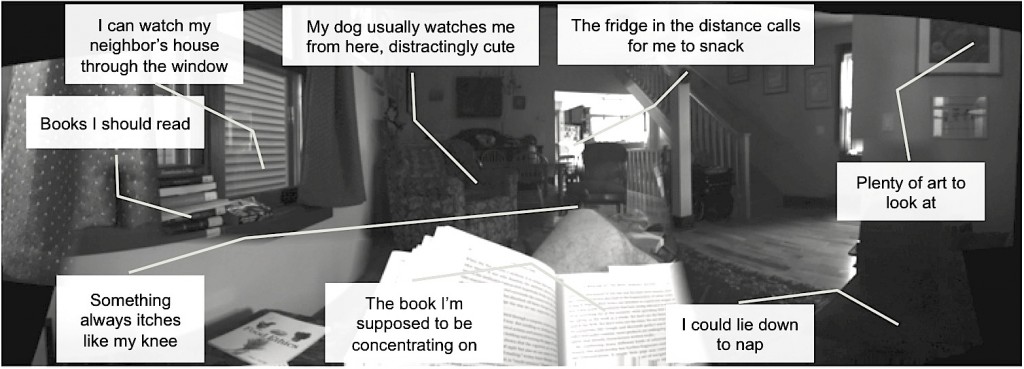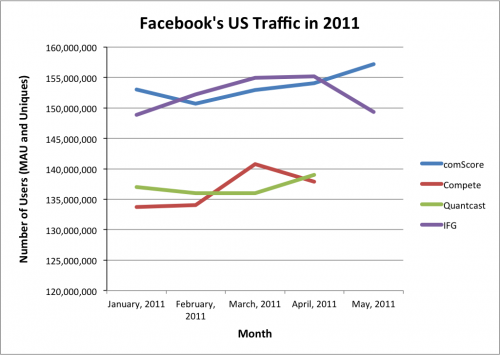I’ve was slowly reading Nicholas Carr’s The Shallows when I came across this passage,
By combining many different kinds of information on a single screen, the multimedia Net further fragments content an disrupts our concentration. (p. 91)
As often happens when reading, questions disrupted my concentration. I couldn’t help thinking that Carr’s gaze was limited by the screen. How many distractions are there beyond the book and screen. I grabbed my iPhone and took a panoramic shot of the visual space from where I sat on the living room couch. Rooms are the problem – they are filled with multimedia and interactive distractions starting with the couch (which invites me to put down the book and snooze.) Here is my annotated “multimedia” space (click to enlarge):


